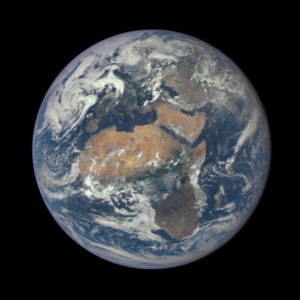
The Zimbabwe government has announced that it intends to create a national space agency that will be called the National Geo-Spatial and Space Agency (NGSSA).
The NGSSA will be run by the Zimbabwe Ministry of Higher and Tertiary Education and is being created as part of the ministry’s 100-day plan. The aim is to create a national entity that can exploit the space environment for Zimbabwean interests through satellites and satellite applications.
The Zimbawean government said in the announcement that the NGSSA will use satellite technologies for mineral discoveries and management; agricultural monitoring; positioning, navigation, and timing (PNT) services; communications, and Earth observation.
Professor Amon Murwira, the Zimbabwean Minister for Higher and Tertiary Education announced that, “We said we are going to launch the Zimbabwe National Geo-Spatial and Space Agency. It will be launched by his excellency [the Zimbabwean President] very soon but it has already been approved.”
Professor Murwira also said that the Zimbabwean government aims to achieve its space, and other technology, goals by creating science and technology hubs in the country. The first of these hubs will be at the National University of Science and Technology (NUST) in the city of Bulawayo.
“To achieve this, we needed innovation hubs and they are being built right now. If you go to Nust, you will see them clearing the ground,” Professor Murwira told Zimbabwean journalists at the NGSSA announcement.
While the announcement has so far been welcomed by commentators in Zimbabwe, there is an acknowledgement that the government will have to make a convincing case for the NGSSA and the resources it will use in a country that continues to tackle extreme poverty and is still emerging from the political uncertainty that resulted from the resignation of its long-time president, Robert Mugabe.
Furthermore, there is some skepticism among commentators that the NGSSA will even get off the ground, despite the official announcement of its creation, due to a litany of government promises that have failed to materialise.
SpaceWatch Africa will continue to monitor developments in Zimbabwe and track the fortunes of the NGSSA.





